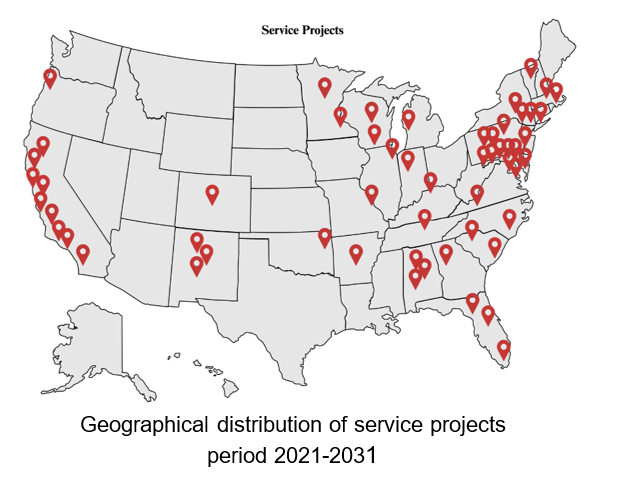
As part of our NCBIB efforts, once new pulse sequences and analysis approaches have reached sufficient maturity to allow use by non-experts, we will make our technologies available to other researchers and clinicians in the country and worldwide. For our data acquisition approaches, reaching maturity generally would be once we have completed repeatability (test-retest) and reproducibility studies. For software, maturity would mean that the product has reached sufficient milestones such as reliable performance and additional capabilities or superior performance in comparison with existing tools. Some software may be made available as freeware through github, and may be improved further by others.
For recruitment of SPs, we expect to be contacted by interested parties who have seen our work at conferences/workshops or in papers/abstracts or have heard about it through word of mouth. On the other hand, if we ourselves see or hear about projects that may benefit from our technologies, we may contact these sites ourselves and offer to provide them with our technology. If you are interested in becoming a service project and use our technology, please apply to apply to Dr. van Zijl or Dr. Lu.
Our Service Projects since 2021 are (ordered chronologically) below:
(“newSP” relates to projects for the period 2026-2031)
- In vivo assessment of meningeal inflammation and its clinical impact in multiple sclerosis by 7T MRI.
Daniel Harrison, University of Maryland, Baltimore City - Explosive synchronization (ES) of brain network activity in chronic pain
Richard Harris, University of Michigan at Ann Arbor - Trajectories of treatment response as window into heterogeneity of psychosis: a longitudinal multimodal imaging study in medication-naive first episode psychosis patients
Adrienne Lahti, University of Alabama, Birmingham - C-STAR: Center for the Study of Aphasia Recovery (promoted to CP, number 11)
Julius Fridriksson, Medical University of South Carolina
Argye Hillis, Johns Hopkins University - The impact of diffuse mild brain injury on clinical outcomes in children
Andrew Mayer, The Mind Research Network/ Univ. of New Mexico - MRI corticography: developing next generation microscale human cortex mri scanner
Chunlei Liu, University of California, Berkeley - Neuropsychobiology in polysubstance abusers during abstinence
Dieter Meyerhoff, Northern California Institute - Imaging neurodegeneration in multiple sclerosis (promoted to CP, number 17)
Peter Calabresi, Johns Hopkins University - Glaucoma Neuroimaging in Humans and Experimental Animal Models
Kevin Chan, New York University - Unraveling the earliest phases of vascular cognitive impairment and dementia using CADASIL--a monogenic form of small vessel cerebrovascular disease
Jane Paulsen, Michael Geschwind, University of Wisconsin, Madison - new SP10: Targeting language-specific and executive-control networks with transcranial direct current stimulation in aphasic AD
Kyrana Tsapkini, Johns Hopkins University - Vascular Contributors to Blood Brain Barrier Permeability and Regional White Matter Hyperintensity Progression in Young Asymptomatic People
Paul Nyquist, Johns Hopkins University - new SP6: Neuroimaging and blood markers in post treatment Lyme disease with persistent neurologic symptoms
Cherie Marvel, Johns Hopkins University - new SP8: Cerebral Microstructure in Aging and Dementia using Advanced Quantitative MRI
Mustapha Bouhrara, NIH/NIA, Bayview - new SP7: Assessing the role of cerebrovascular brain injury and dysfunction in Alzheimer’s disease pathogenesis in the BEACoN Cohort
Michael A. Yassa, University of California, Irvine - Sleep and Circadian Dysfunction, Brain and Neurobehavioral Development in Autism
Stewart Mostofsky, Kennedy Krieger Institute - new SP1: Phase II clinical trial of transcranial direct current stimulation in the treatment of primary progressive aphasia
Roy Hamilton, University of Pennsylvania - new SP2: Understanding Neurocognition in Youth with Type 1 Diabetes (UNYT1D) Biostatistics Research Center (BRC). (12 sites)
Erika Helgeson and Lynn Eberly, Washington University - new SP3: Inflammation, BBB disruption, and Reward Function in the Pathogenesis of Depression among PWH
Vilma Gabbay, University of Miami - new SP4: Southern California (LASC) NIH StrokeNet Regional Coordinating Center
Jeffrey Saver, UCLA - new SP5: New Mexico Alzheimer's Disease Research Center (NM ADRC)
Gary Rosenberg and Arvind Caprihan, University of New Mexico, Albuquerque - new SP9: Multi-scale and multi-modality imaging of neuropathology in VCID
Yulin Ge, New York University - new SP11 (from old CPs12-24): Healthy Brain and Child Development National Consortium (27 sites)
Christopher Smyser, Washington University
